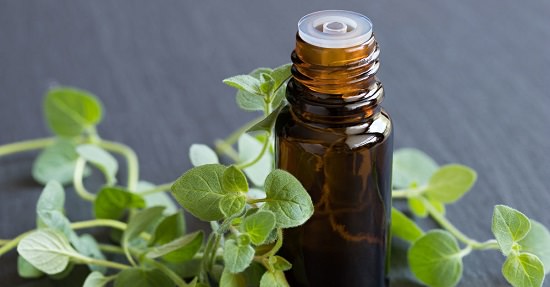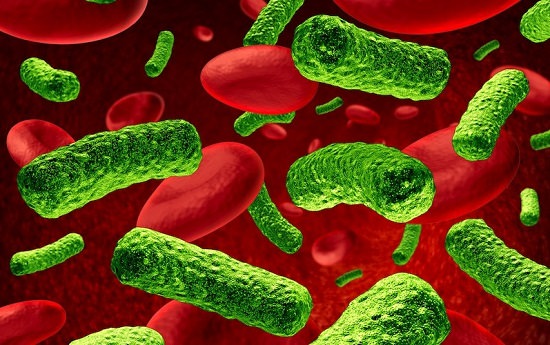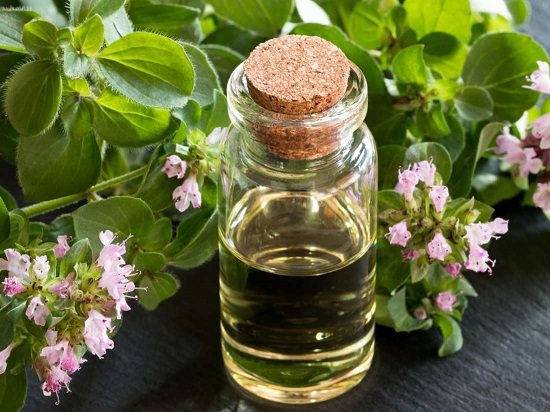Does oregano oil kill good bacteria along with the bad ones? Learn all about the benefits and precautions of using oregano essential oil in this article.
What is Oregano Essential Oil?
Oregano is amongst the most beneficial herbs in the culinary world and is also a potent antibiotic. Made from dried, wild oregano leaves, oregano oil is the pure extract of the plant. The essential oil is extremely potent when used without diluting. Hence, it should be diluted with carrier oils to reap its benefits.
Oregano Oil Against Bacterial Infection
Regular consumption of antibiotics has made people’s bodies resistant to drugs and medicinal antibiotics. In addition to this, changing lifestyles, stress, and poor diets have affected nearly everyone’s immune system.
Oregano essential oil proves to be the best solution and answer to the problem. The natural antibiotic is beneficial as bacterias are unable to form a resistance against it.
Carvacrol and thymol present in oregano essential oil fight against a variety of bacteria. Some of them are Bacillus, Enterococcus, E.coli, Salmonella, and Pseudomonas. The carvacrol component in the essential oil poses less damage to the overall microbiome than conventional antibiotics. In addition to that, the antibacterial properties of the compound also help treat candida (yeast) infections.
Not only is oregano essential oil gentler than any pharmaceutical antibiotics, but it also has close to nil side effects when used in controlled dosage and under proper guidance.
Does Oregano Oil Kill Good Bacteria?
Yes, even as the natural antibiotic is a gift for all forms of bacterial and yeast infections, it cannot differentiate between the good and the bad bacteria. In other words, it eliminates all types of bacterias, the good and the bad ones in your gut. Therefore, the overuse of oregano essential oil can lead to diarrhea and an upset stomach.
However, foods that support healthy gut bacteria, such as yogurts and other fermented foods, can help repopulate the good bacteria and save you from those extra trips to the bathroom.
Pregnant women and people with existing health conditions should consult with their doctors before starting the consumption or topical application of oregano essential oil.
Reasons Why You Should Use Oregano Essential Oil Rather Than Pharmaceutical Antibiotics
- It is cheaper than the pharmaceutical options available in the market.
- It is a natural product and has more benefits than side-effects, compared to pharmaceutical counterparts.
- The beneficial compounds in the oil help you avoid antibacterial resistance for an extended period. On the other hand, bacterias form a resistance to pharmaceutical antibiotics over some time.
How to Take Oregano Essential Oil
Generally, oregano essential oil is used in two primary forms for its health benefits, mixed with carrier oils and other dilutants or in capsules. For diluted consumption, mix a drop of oregano essential oil with a drop of extra virgin coconut oil. Then leave the mixture under your tongue for a minute. After that, rinse your mouth thoroughly.
In case of infections, you can take two drops of the diluted oil twice or thrice a day.
You can take 200mg of oregano oil capsules with a swish of water thrice a day.
Note: Make sure you are consuming enough probiotic products to support a healthy gut with the oregano oil.
Precautions Related to Oregano Oil
The antimicrobial properties of natural oil are incredibly potent. Therefore, it is not advisable to take it for more than fourteen consecutive days without a doctor’s supervision. Also, if you are already taking some medication, you should consult your doctor to understand the medicine’s possible interactions with the essential oil.
Now that you know the answer to does oregano oil kill good bacteria and the precautions related to it, are you ready to switch to natural antibiotics to treat bacterial infections? Let us know in the comments below.



